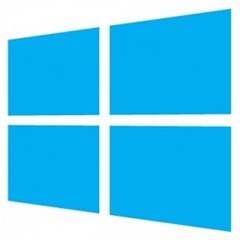by Dmitry Kirsanov
15. December 2012 05:16
 For a long time I had an itch to create an introduction to Windows 8 Metro Apps development with using either XAML or HTML 5 and JavaScript, but had no time to begin. So here it goes.
For a long time I had an itch to create an introduction to Windows 8 Metro Apps development with using either XAML or HTML 5 and JavaScript, but had no time to begin. So here it goes.
This will be the first part of (hopefully) many and I’ll begin with explaining the Windows Store – what it is, how it works and why I think it should matter for you.
More...
by Dmitry Kirsanov
21. November 2012 10:07
 With upcoming retirement of nearly all its exams, Microsoft created a new roadmap for the upcoming certifications for all kinds of specialties, including Microsoft Office, System Administration, SQL Server and Software Development. Here is the latest map in PDF format. As always, you can get all the latest information at Microsoft’s official learning website. More...
With upcoming retirement of nearly all its exams, Microsoft created a new roadmap for the upcoming certifications for all kinds of specialties, including Microsoft Office, System Administration, SQL Server and Software Development. Here is the latest map in PDF format. As always, you can get all the latest information at Microsoft’s official learning website. More...
by Dmitry Kirsanov
16. November 2012 22:34
New technologies allow us to reach new goals. Different tool sets enrich scenarios and it becomes easy to do things we couldn’t dream about before. We implement features so fast, that sometimes we just can’t analyze the impact until the most loyal customers uninstall our app.
Once upon a time I’ve downloaded the mobile application which made my phone a toy that could be handed to a kid. Just like the Kid’s Corner in Windows Phone 8, but for Android. It contained a few badly written games, but it was not the reason why I uninstalled it.
In Android, just like in Windows 8, you can use other apps to enrich your application with their services. Connect to social networks, send e-mails and whatever else.
What this particular application did – it used my e-mail application to send e-mail to developer of that application, to automatically register me as it’s user. I realized that only when I’ve received an e-mail with the password and warm “thank you” for registration which I didn’t commit or solicit.
In some countries that’s crime which could cost you your business.
The morale is – sometimes you can’t do what you can do. You can use contracts in Windows 8 (or their analogs in Android and iOS), but you shouldn’t do anything that your customer is not aware of and can’t cancel before it happens.
by Dmitry Kirsanov
14. November 2012 19:29
Here is a short story of a good idea gone bad, and a good lesson for mobile application developers.
The Preamble
We find ideas everywhere. The best place to find a good idea is where you wouldn’t look for it. The dump, graveyard, museum, park or simply the street of your city at night (in other words – any uncommon place for you) may bring something that would keep you busy for the next year. Or show the pitfall to avoid, and sometimes this knowledge comes with the price.
More...
by Dmitry Kirsanov
15. October 2012 06:04
Today, if you’ll visit the MSDN Labs, you won’t find there much about Microsoft SQL Server Reporting Services. The reason is simple – Microsoft doesn’t consider reporting to be the edge technology. The frontier of changes and fountain of creativity is somewhere else. Usually what you see in there is something that is complex or very important for Microsoft. Neither is a category for reports.
However, I recognize the trend, which is, although relatively distant, could shift the position of Reporting Services and perhaps make it more widespread, potentially adding more jobs to the market.
More...
by Dmitry Kirsanov
6. October 2012 14:22
_thumb.jpg) This article is about free software I made to automate the deployment of exported Hyper-V machines. More precisely – Hyper-V machines of labs for Microsoft Official Curriculums (MOC), used by students at Microsoft official training classes. It should be interesting for MCTs (i.e. Microsoft Certified Trainers) out there, whose job is to deploy labs in form of Hyper-V virtual machines, as well as for system administrators having the same duty of periodic installation of Hyper-V virtual machines. The installation procedure of a pack of Hyper-V machines could be extremely time consuming. Or should I say - used to be.
This article is about free software I made to automate the deployment of exported Hyper-V machines. More precisely – Hyper-V machines of labs for Microsoft Official Curriculums (MOC), used by students at Microsoft official training classes. It should be interesting for MCTs (i.e. Microsoft Certified Trainers) out there, whose job is to deploy labs in form of Hyper-V virtual machines, as well as for system administrators having the same duty of periodic installation of Hyper-V virtual machines. The installation procedure of a pack of Hyper-V machines could be extremely time consuming. Or should I say - used to be.
I will speak about it as about the solution for a lab deployment problem, but if you are working with other virtual machines, just think about the similarities with your scenario.
More...
by Dmitry Kirsanov
27. September 2012 06:32
Well, the “unexpected” should be put into quotes, because if you went through the Windows 8 training, then you have some ideas about how it works, but even if you did the training, some things are not clear until you crash at them at full speed.
As I mentioned before, Windows 8 now suspends applications which loose their focus. In Metro applications framework you, as developer, can deal with suspension notice and make sure you save the current state of the application, and you could use application manifest to create exception from the rule. Say, if your application is a media player or a browser.
However, it turns out that Metro applications are not the only ones to be suspended. More...
by Dmitry Kirsanov
24. September 2012 08:32
For some software companies, the .NET Framework 3.5 is the current production version. However, it was also very problematic release because of the deployment issues. Windows Vista machines didn’t have it installed by default, so many companies continued to use 2.0 as much as they could, but then Windows 7 had it installed by default, so it became the new standard. But Windows 8 changed it all. More...
by Dmitry Kirsanov
16. September 2012 21:00
 Is Windows 8 a new Windows Vista?
Is Windows 8 a new Windows Vista?
During last few days the first thing that comes to my mind every morning, is this question.
The few months before and after the release of Windows 8 is the period of unique opportunity, just like it happens with other new or fundamentally changed products. The amount of efforts you put during such period of time always pays more than the same amount of effort at a later time.
This year, Microsoft is publishing a whole range of new (very) expensive fundamental products. Windows 8, Windows Server 2012, System Center 2012, Office 2013, Visual Studio 11 with Team Foundation Server 11 and more. Some of these products don’t bring any significant opportunity, as user interface is the only change that affects most of it’s users. For example – Office 2013. It’s nice, it should work better, but there’s no real reason to upgrade.
However, Windows 8 is different. As Microsoft rightfully says, it was reimagined, and the problem is – they are not lying and it’s not a buzzword (yet). The changes they made to the very principles of how applications work – not just the looks, but even the life cycle of application – make it harder for the market to swallow. More...
by Dmitry Kirsanov
13. September 2012 20:02
 In some future articles I am going to use this term, as well as you’ll hear it more often, because it may turn into a buzzword soon. So I’ll explain it to make sure we’re on the same page in the future.
In some future articles I am going to use this term, as well as you’ll hear it more often, because it may turn into a buzzword soon. So I’ll explain it to make sure we’re on the same page in the future.
People are habit-driven. We invent something and then we are just following the path. We are building paths for ourselves and for other people, depending from what we do. Manuals, instructions, laws and policies – these are perhaps the biggest examples of rules we make, but there are others, which you follow without consent. Why do you pour coffee before milk?
Some of the rules and habits we have are perfectly reasonable. Like when you are taking your umbrella when you are expecting showers. Or the way you are using the elevator or doing any other routine in never changing principles. However, some rules outlive the reason why they were created. More...